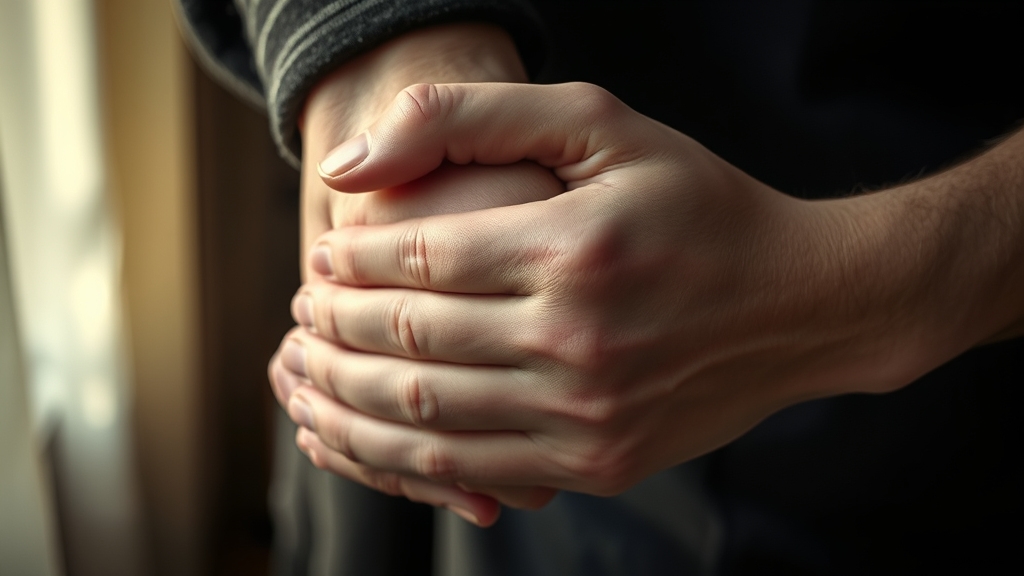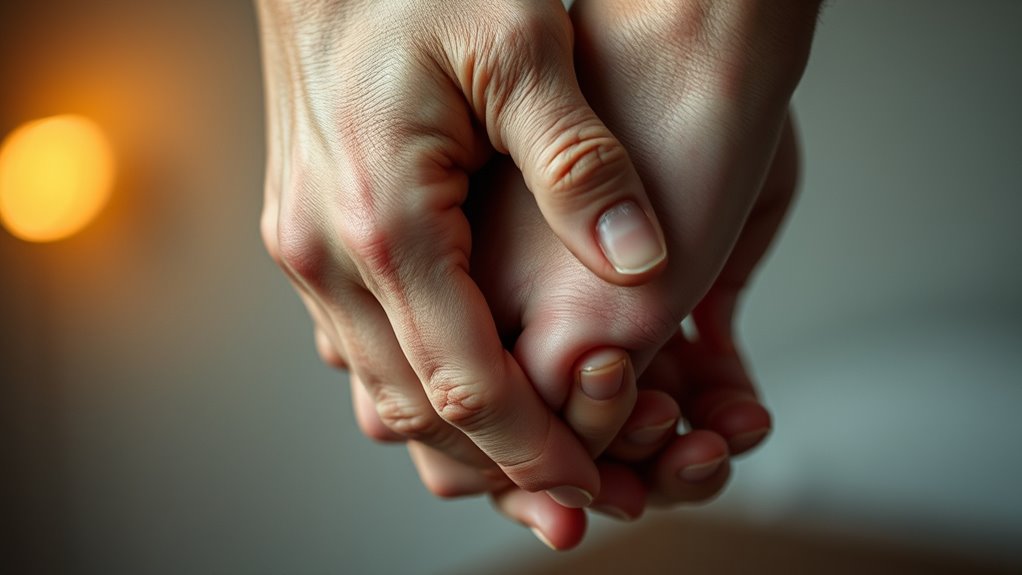Loving too much can blur emotional boundaries, leading to dependence and emotional exhaustion. Recognize signs like sacrificing your needs, feeling drained, or losing your identity. Establish healthy boundaries by saying no, prioritizing self-care, and communicating openly about your limits. Managing underlying feelings like fear of abandonment helps prevent reliance. Please note that cultivating self-respect and embracing personal growth is essential to break free. Continue further to learn practical steps to reclaim your independence and love healthily.
Key Takeaways
- Recognize when love blurs boundaries, causing emotional exhaustion and loss of personal identity.
- Establish clear emotional boundaries to protect your well-being and prevent dependence.
- Practice self-care activities to rebuild your sense of self and reduce over-giving.
- Address underlying fears like abandonment or loneliness that fuel excessive devotion.
- Cultivate self-respect and open communication to foster healthier, balanced relationships.

Have you ever loved someone so deeply that it starts to feel overwhelming? When your affection becomes all-consuming, it’s easy to lose sight of yourself in the process. Loving too much can blur emotional boundaries, making it hard to distinguish where your needs end and theirs begin. You might find yourself constantly giving, sacrificing, and worrying, often at the expense of your well-being. The key to navigating this intense devotion is to establish clear emotional boundaries. These boundaries act like a safeguard, helping you protect your energy and maintain a sense of identity outside the relationship. Recognize what’s healthy and what’s not—if you’re feeling drained or anxious, it’s a sign your boundaries might be too porous. Setting limits doesn’t mean you love less; it means you love smarter. It’s essential to develop self-care strategies that reinforce these boundaries and prioritize your emotional health. This could involve carving out time for activities that rejuvenate you, like hobbies, exercise, or spending time with friends. Remember, self-care isn’t selfish; it’s necessary. When you take care of yourself, you’re better equipped to give genuine support without losing yourself. Incorporating self-awareness practices can help you recognize when your boundaries are being tested or crossed, fostering healthier interactions. Understanding your emotional boundaries also involves being honest with yourself about your feelings and limitations. Sometimes, loving too much stems from a fear of abandonment or loneliness, leading you to overextend. Acknowledge these feelings without judgment and work on building your emotional resilience. Engaging in emotional regulation techniques can assist in managing these intense feelings more effectively. Cultivating healthy boundaries is crucial for maintaining emotional well-being and preventing dependence from taking hold. Practicing these boundaries can help you create a safer emotional environment and avoid codependency in relationships. Practice saying no when you need to and communicate openly about what you can and cannot give. This not only protects your energy but also fosters healthier dynamics. As you cultivate these self-care strategies, you’ll gradually regain control over your emotions and prevent dependence from taking hold. Loving deeply is beautiful, but it shouldn’t come at the expense of your well-being. By respecting your boundaries and prioritizing self-care, you create a more balanced, sustainable form of love—one rooted in mutual respect rather than dependency. Remember, loving yourself is just as vital as loving others. Only then can your devotion flourish without becoming overwhelming or unhealthy.
Frequently Asked Questions
How Can I Recognize if My Love Has Become Unhealthy?
You can recognize unhealthy love by paying attention to your emotional awareness. If you feel overwhelmed, anxious, or lose your sense of self, it’s a sign. Setting boundaries helps you maintain balance, so if you find yourself constantly sacrificing your needs or feeling dependent on your partner’s validation, your love may be unhealthy. Stay mindful of these feelings, and don’t hesitate to establish boundaries to protect your well-being.
What Are the First Steps to Break Free From Dependency?
Imagine breaking free from a love so tight it feels like you’re chained to it. The first steps are vital—start with self-awareness exercises to understand your emotions and needs. Then, practice boundary setting to protect your well-being. By recognizing your dependency and establishing healthy limits, you gradually reclaim your independence. This process might feel intense, but it’s your path to genuine, balanced love and self-empowerment.
Can Loving Too Much Harm My Mental Health?
Loving too much can harm your mental health by causing emotional exhaustion or dependence. When you neglect boundaries, you may feel overwhelmed or anxious. Setting clear boundaries helps protect your emotional well-being, preventing burnout. Prioritize your needs and communicate openly. Remember, healthy love involves balance and respect for your emotional boundaries, ensuring your mental health stays strong while you care for others.
How Do I Rebuild My Self-Esteem After Dependency?
To rebuild your self-esteem after dependency, focus on self-worth reinforcement by recognizing your strengths and achievements. Practice boundary setting to protect your energy and affirm your independence. Engage in activities that boost confidence, surround yourself with positive influences, and remind yourself that your value isn’t tied to others. Over time, these steps help you regain control, foster self-love, and establish healthier relationships with yourself and others.
When Should I Seek Professional Help for Love Dependency?
You should seek professional help for love dependency if you notice persistent issues with emotional boundaries or unhealthy relationship patterns. If you feel overwhelmed, unable to establish independence, or your dependency affects your mental health, it’s time to consult a therapist. A professional can guide you in recognizing underlying causes and developing healthier relationship habits, helping you regain control and build more balanced, fulfilling connections.
Conclusion
Remember, love is like holding a delicate butterfly—gentle, beautiful, but easily squished if you cling too tightly. When devotion turns into dependence, you risk crushing what was meant to soar freely. Let your heart be the open sky, giving space for love to breathe and grow naturally. Release the tight grip, and you’ll find love transforming into a gentle breeze—guiding, uplifting, and free to blossom into something truly beautiful.









